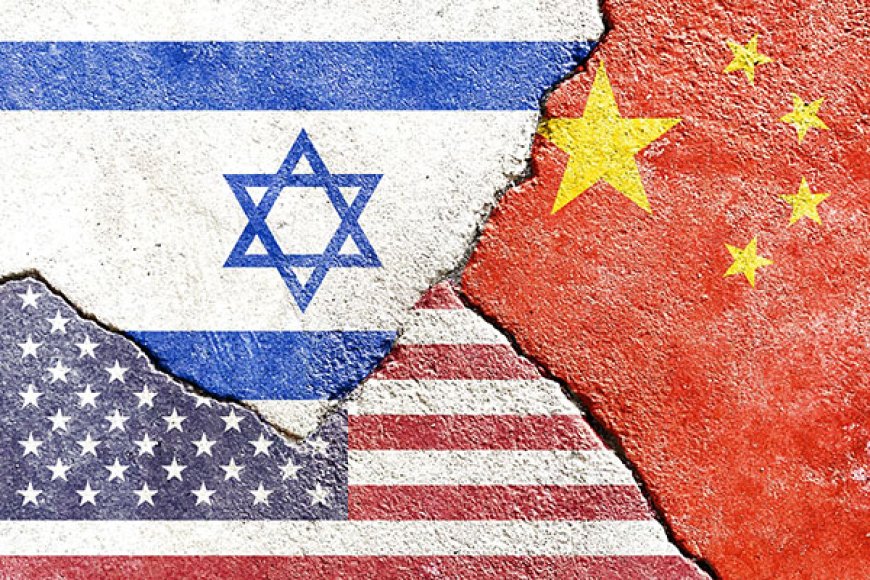Zionist Invisible Hands: How Israel Acts as a Catalyst for U.S.-China Tensions

By: A. Mahdavi
In the past year the United States has once again demonstrated its unwavering commitment to bolstering the Israeli regime even as it cloaks its support under the guise of humanitarian efforts. This reveals a deeply entrenched alliance with a terrorist regime that murders women and children in Gaza that merits close examination particularly in the context of Washington’s broader geopolitical ambitions. The unrelenting American support for Israel is not simply a byproduct of its historical ties but rather a calculated strategy rooted in the political and economic pressures exerted by influential pro-Israeli lobbies in Washington, D.C. and media powerhouses within the United States.
It is essential to recognize that US policymakers deem Israel as a crucial linchpin in their strategy for dominance in Southwest Asia. The relentless military and diplomatic backing that Israel receives from the United States enables its leadership to commit some of the most egregious human rights violations without fear of consequence secure in the knowledge that America will stand firmly behind them. Such steadfast support reveals a broader American objective that goes beyond regional skirmishes---one focused on consolidating its hegemony in the region to the detriment of other global powers most notably China.
The recalibration of US foreign policy following the collapse of its New Middle East initiative in 2006 in which Israel faced a humiliating defeat marked a pivot in Washington’s approach. Since then the US has adopted a more distant yet strategic form of intervention in the region. However the containment of China has increasingly dominated Washington’s foreign policy calculus superseding regional concerns. Over the past decade the US has endeavored to force its allies into supporting a multifaceted anti-China agenda---imposing trade tariffs dismantling existing trade agreements and pressuring its global partners to do the same.
In recent months however it appears that the United States has revised this approach. In the aftermath of the October 7 2023 events Washington is redoubling its efforts to assert control over Southwest Asia using its unwavering support for Israel as a pretext. By intensifying its military presence and reinvigorating its regional alliances the US aims to undermine Beijing’s growing influence. It is clear that the American strategy of containing China has evolved becoming more sophisticated and multi-dimensional with the aim of thwarting Beijing’s long-term aspirations including the Belt and Road Initiative.
The US now seeks, albeit in vein, to paralyze the infrastructure critical to China’s global trade routes while weakening the Iran-led Axis of Resistance in the region. By manipulating the narrative around regional security and protecting its so-called allies Washington intends to fortify its military foothold and project itself as an indispensable security guarantor. The real motive behind these maneuvers however is to control vital energy trade routes and disrupt China’s geopolitical ascendancy.
Washington’s overarching aim therefore is to maintain its status as the world’s unrivaled superpower. The US has repeatedly deployed every available tool---economic sanctions military posturing and diplomatic pressures---yet it remains dissatisfied with the results. As a result it is now relying on regional unrest and strategic alliances particularly with Israel to create obstacles for China’s rise.
China for its part cannot afford to adopt a passive stance in this evolving geopolitical game. As the US strengthens its grip on the Middle East under the pretext of regional security it is incumbent upon Beijing to assert its role as a global power both in terms of logistical and intelligence support. The outcome of the ongoing conflict in the region may very well determine the future balance of power---not only in the region but across the international system.
In conclusion China must rise to the challenge strategically positioning itself as a counterweight to US agendas. Failing to do so risks enabling Washington to consolidate its global dominance at the expense of China’s legitimate aspirations. The developments stemming from the October 7, 2023 events are not isolated events they are part of a broader geopolitical contest that will shape the international order for decades to come.













































